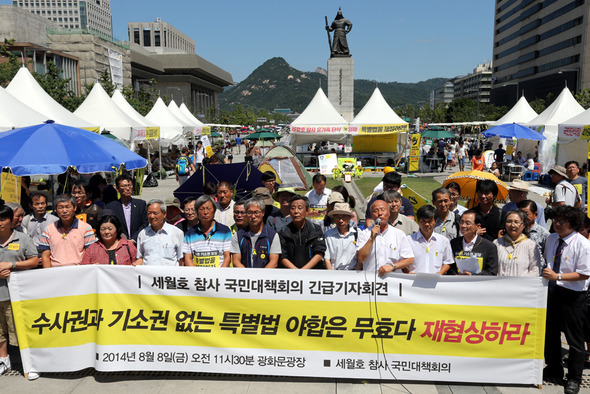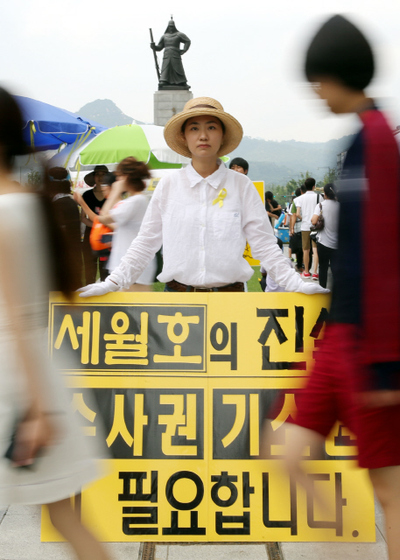 |
The Sewol Tragedy People’s Committee holds a press conference in Gwanghwamun Square in central Seoul, to announce their opposition to the ruling and opposition parties’ compromise on the special Sewol Law, and call for increases in the special committee’s powers of investigation and prosecution, Aug. 8. (by Kim Tae-hyeong, staff photographer)
|
The political opposition’s compromise on special Sewol Law only worsens the pain of victims’ families seeking truth
By Kwak Byong-chan, senior editorial writer |



No comments:
Post a Comment